Day-to-Day Duties of a Fire Warden
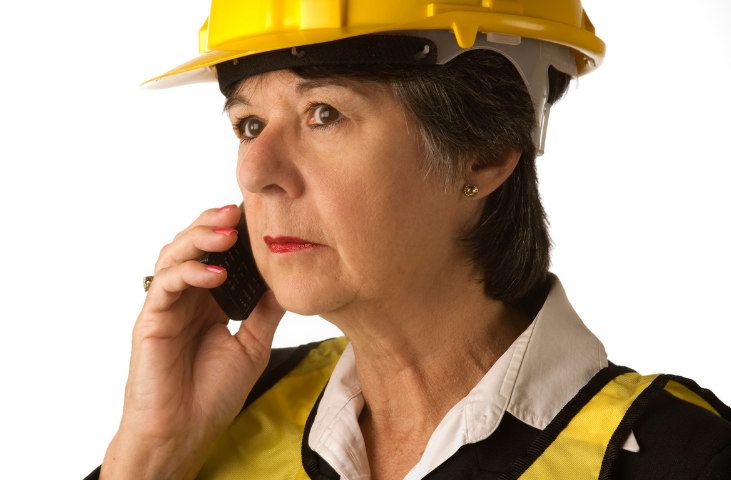
Estimated reading time: 7 minutes
Day-to-Day Duties of a Fire Warden
Have you been appointed as a fire warden in your organisation? If so, you might be wondering about your day-to-day responsibilities. To help you get started, we’ve created a handy checklist highlighting some of the key tasks you may be responsible for.
However, it’s important to note that there is no standard set of day-to-day fire warden duties. A fire warden’s responsibilities can vary widely depending on the type, size and nature of the organisation they work in. For example, a fire warden in a small office may be the only appointed fire warden, with their main duties focusing on ensuring evacuation routes are clear and conducting regular fire drills. In larger businesses, a fire warden may have a broader role and share responsibilities with other fire wardens. They may also be assigned fire safety for a specific area or floor of the building. A fire warden in a large manufacturing facility might manage additional risks, such as overseeing the safe storage of flammable materials or coordinating the emergency service response if there is a fire. Fire wardens in hospitals or care homes face specific challenges, including assisting with the evacuation of vulnerable individuals with their own Personal Emergency Evacuation Plans (PEEPS).
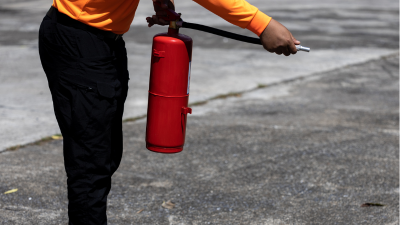
Why Do We Need Fire Wardens?
While fire emergencies may be rare, the day-to-day duties of a fire warden are important in preventing workplace fire incidents and maintaining a safe environment for everyone who is in the building. Fire wardens can help reduce the risk of fires starting in the first place, ensure fire safety is monitored on an ongoing basis, understand and practice emergency procedures and carry them out to prevent chaos during a fire emergency.
Under fire safety legislation, such as the Regulatory Reform (Fire Safety) Order 2005 in England and Wales, the Responsible Person holds the legal duty for ensuring fire safety within the organisation/building. They also have overall accountability for fire safety and can face legal consequences if these duties are not met.
A fire warden/marshal is appointed to assist the Responsible Person with day-to-day duties for fire safety, acting as the ‘eyes and ears’ on the ground.
Other roles in an organisation that have a responsibility for fire safety are the Competent Person, who is appointed by the Responsible Person to provide specialist fire safety advice or assistance, such as conducting fire risk assessments or maintaining fire safety equipment.
Day-to-Day Duties of a Fire Warden
Next, we look at the typical day-to-day duties of a fire warden. When we refer to day-to-day duties, we mean the tasks and duties that are carried out regularly or on an ongoing basis. These can be either reactive or proactive responsibilities. Proactive responsibilities involve taking steps to prevent fires from occurring in the first place, such as regularly inspecting fire safety equipment. Reactive responsibilities refer to any actions taken during and after a fire emergency to ensure everyone’s safety, such as directing people to designated evacuation points.

We now list the typical key day-to-day duties that a fire warden may be required to perform:
1. Conducting Fire Safety Inspections
Fire wardens regularly inspect the workplace to identify and address potential fire hazards. These could include:
- Checking for blocked or obstructed fire exits and ensuring evacuation routes are clear.
- Verifying that fire doors are operational and not propped open.
- Inspecting fire extinguishers to ensure they are in good condition and not tampered with.
- Ensuring that electrical equipment is properly maintained and does not present a fire hazard.
- Confirming that combustible materials are stored safely and away from potential ignition sources.
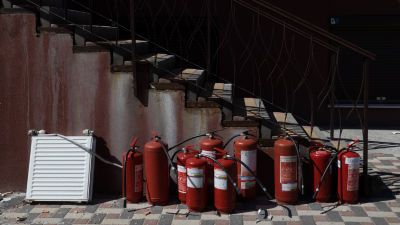
2. Maintaining Fire Safety Equipment
Fire wardens are responsible for ensuring that fire safety equipment is well-maintained and ready for use at all times. This includes:
- Testing smoke alarms, heat detectors and fire alarms to ensure they function correctly.
- Ensuring emergency lighting systems are operational.
- Verifying that fire extinguishers are serviced regularly and are placed in designated locations.
- Ensuring fire safety signage is fit for purpose.
3. Monitoring Fire Safety Compliance
Fire wardens help ensure that all building occupants adhere to fire safety protocols, such as:
- Avoiding the use of elevators for non-emergency purposes where fire safety instructions prohibit it.
- Keeping fire exits and evacuation routes free of obstructions.
- Reporting any unsafe behaviors or conditions, such as the use of unauthorised heaters or smoking in prohibited areas.
4. Organising Fire Drills
One of the key day-to-day duties of a fire warden is planning and overseeing regular fire drills. These should be conducted at least once a year, but more often if the situation warrants it. For example, an office building with a low staff turnover does not need to hold a drill as often as a warehouse with shift workers and a high turnover of staff.
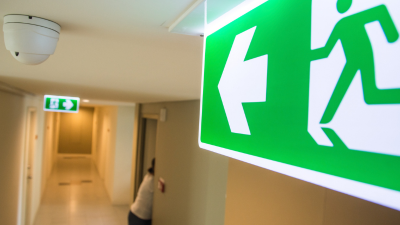
Regular fire drills help:
- Ensure all occupants are familiar with evacuation routes and procedures.
- Test the efficiency of the fire evacuation plan.
- Identify potential areas for improvement in the evacuation process.
5. Providing Fire Safety Training
Fire wardens are often responsible for educating employees and other building occupants about fire safety. This includes:
- Conducting training sessions on how to use fire extinguishers and other safety equipment.
- Ensuring new employees are briefed on evacuation procedures and fire safety protocols.
- Promoting fire safety awareness through posters, notices and mandatory and cautionary signs.
6. Developing and Reviewing Emergency Plans
A fire warden plays a key role in developing and maintaining fire safety plans for the building. This involves:
- Reviewing evacuation plans to ensure they remain effective and up-to-date.
- Making necessary adjustments based on changes in building layout or occupancy.
- Ensuring that Personal Emergency Evacuation Plans (PEEPs) are created and updated for individuals requiring special assistance during an evacuation.
7. Keeping Records
Accurate record-keeping is an important day-to-day responsibility of a fire warden. This includes:
- Logging fire safety inspections and equipment maintenance checks.
- Recording the results of fire drills and any identified issues.
- Documenting fire safety training sessions and attendance.
8. Assisting with Fire Risk Assessments
- Conduct regular checks to spot potential fire risks, such as blocked exits or faulty equipment and report these to the Responsible or Competent Person.
- Share observations about fire safety risks or issues encountered during routine duties to contribute to the assessment process.
- Assist with implementing the emergency plan, take part in fire drills and support occupants during evacuations by providing guidance and assistance when needed.
- Enforcing fire safety measures: Ensure fire safety precautions from the fire risk assessment are implemented, such as keeping escape routes clear, checking fire doors and reminding staff of their responsibilities.
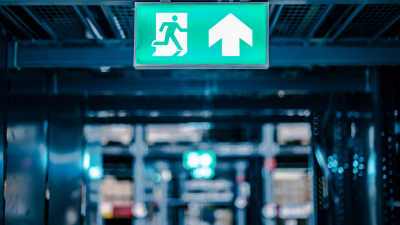
The day-to-day duties of a fire warden go far beyond their responsibilities during a fire emergency. Businesses and organisations must support fire wardens by providing the necessary training as the fire warden role doesn’t just manage fire emergencies; they prevent them from happening in the first place.
Our accredited online Fire Marshal/Warden Course for staff or face-to-face Fire Marshal/Warden Courses cover the day-to-day duties of a fire warden in greater detail. The course includes understanding the principles of fire and how fires spread, knowing the main fire safety regulations, comprehending general workplace fire safety, having an overview of fire risk assessments and learning about the main types of fire extinguishers and how to use them.
Alternatively, if you would like additional information about your fire training requirements, you can get in touch with our friendly customer service team by calling us on 01327 552160, emailing us at hello@smarthorizons.co.uk, getting in touch via live chat or filling in our web contact form.
